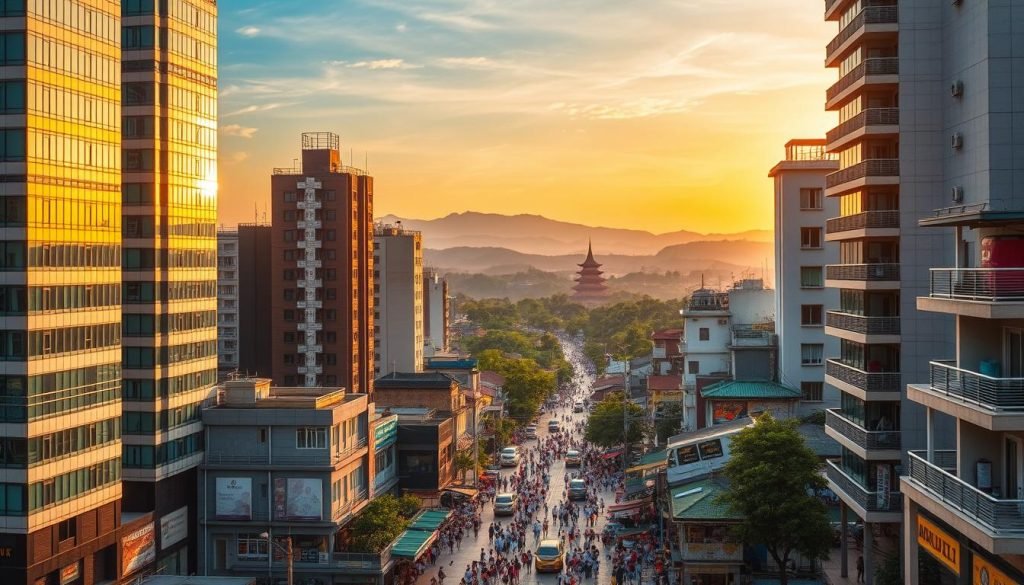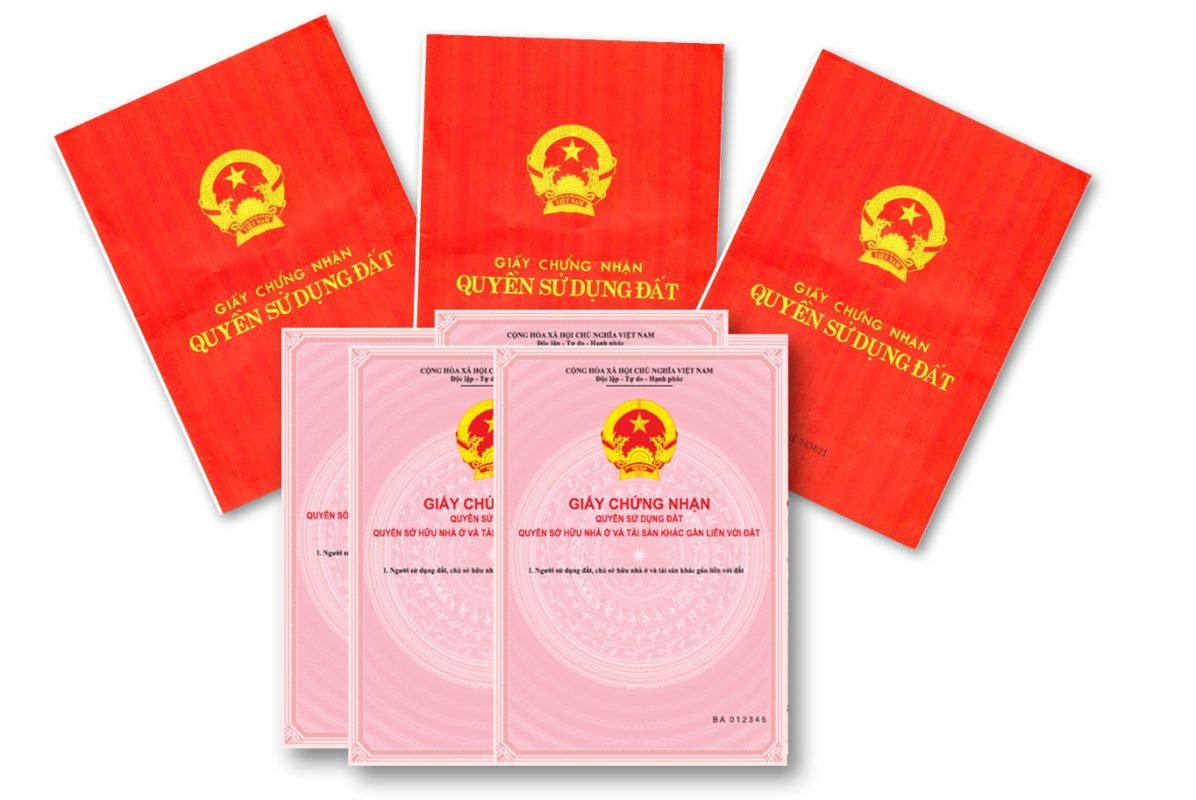How to Do Due Diligence Before Buying in Vietnam

Thinking about buying a property in Vietnam? It’s key to do your homework well. Experts like VNBG can help you understand local rules. This way, you can be sure everything is done right.
Doing due diligence is important. It helps you spot any risks or chances with the property. You’ll look closely at the title search and other important details that affect your investment.
Key Takeaways
- Understand the importance of due diligence in property acquisition
- Identify key factors to consider during the due diligence process
- Recognize the benefits of thorough due diligence
- Learn how to navigate local regulations with expert assistance
- Mitigate any risks linked to property investment
Understanding the Vietnamese Property Market
Thinking about investing in Vietnam’s property market? It’s key to know the current scene. Vietnam is getting more appealing for mergers and acquisitions, with real estate being a big part of this.
Current Market Trends and Investment Hotspots
The Vietnamese property market is growing fast. This growth comes from foreign and local investors. Major cities like Hanoi and Ho Chi Minh City are hot spots. Also, places like Da Nang and Nha Trang are gaining attention.
Regional Differences in Property Values
Property prices in Vietnam change a lot by region. Cities usually have higher prices than rural areas. For example, apartments in Hanoi or Ho Chi Minh City cost more than in other parts of the country.
Types of Properties Available to Foreign Buyers
Foreigners can buy apartments, villas, and commercial properties in Vietnam. But, there are rules about owning land. You can own properties, but land is usually owned by the state. Knowing what you can buy and own is important for smart investing.
Legal Framework for Foreign Property Ownership
Understanding the laws for foreign property ownership in Vietnam is key. As a foreign investor, knowing the rules is essential. It helps you make smart investment choices.
Ownership Rights and Limitations for Foreigners
Foreigners can own apartments and houses in Vietnam. But, there are some rules. For example, you can own up to 30% of a building’s area. There are also limits on how many properties you can own.
Land Use Rights vs. Freehold Ownership
In Vietnam, the government owns the land. Foreigners can get land use rights, but not freehold ownership. This means you can use the land for a set time.
Recent Legal Changes Affecting Foreign Buyers
New laws have changed how foreign buyers own property in Vietnam. The Law on Residential Housing and Law on Real Estate Business have brought new rules.
Law on Residential Housing
This law covers the development, sale, and ownership of homes. It explains the rights and duties of property owners.
Law on Real Estate Business
The Law on Real Estate Business deals with real estate business activities. This includes the sale and purchase of properties.
Essential Vietnam Property Due Diligence Steps
Exploring property investment in Vietnam? Conducting thorough due diligence is vital. It ensures a secure and profitable deal.
Preliminary Research and Planning
Start by researching the market. Learn about current trends and hotspots. Understand how property values vary by region. Thorough research helps you avoid costly errors.
Document Verification Process
Verifying property documents is key. Check title deeds, land use rights, and other important papers. Careful document verification prevents legal issues later.
Working with Local Legal Experts
Get help from local legal experts. They know Vietnam’s laws well. They guide you through the due diligence process.
Government Approvals Required
Getting government approvals is essential. This includes approvals for foreign investors. Make sure you have all necessary approvals for a smooth transaction.
Follow these steps to ensure a successful investment in Vietnam. As an expert once said,
“Due diligence is the cornerstone of a successful investment strategy.”
This highlights the need for a detailed and planned approach to property investment.
Title Search and Verification Techniques
Understanding title search and verification techniques can save you from legal issues when buying property in Vietnam. A thorough title search is key to verify legal ownership and land use rights.
How to Conduct a Proper Title Search
To do a proper title search, review the property’s land title and land use rights certificates. Check the property’s history and ensure there are no disputes or debts. Also, verify the seller’s ownership rights.
Red Flags in Property Documentation
When looking at property documents, watch out for red flags. These include incomplete or inconsistent info, unauthorized changes, or missing documents. Verify all details carefully to avoid issues.
Verifying Land Use Rights Certificates
Land use rights certificates prove your ownership rights. Verify that the certificate is genuine and up-to-date.
Pink Book vs. Red Book Documentation
In Vietnam, property ownership is shown by either a “Red Book” or a “Pink Book.” The Red Book is for long-term use rights, while the Pink Book is for shorter use rights. Knowing the difference helps you make an informed purchase.
| Document Type | Use Rights Duration | Implications for Buyers |
|---|---|---|
| Red Book | Long-term | Provides secure, long-term ownership |
| Pink Book | Shorter-term | May have restrictions on transfer or sale |

Physical Property Inspection Guidelines
Inspecting a property in Vietnam is more than just looking around. It’s about a detailed check to find any problems that might affect your investment. A complete physical property inspection is key to knowing the property’s condition and making a smart choice.
Structural Assessment Considerations
When checking a property’s structure, it’s wise to get a professional like an engineer or architect. They can spot structural damage, like cracks in walls or uneven floors. Focus on the foundation, roof, and electrical and plumbing systems.
Environmental Factors to Evaluate
Environmental factors greatly affect a property’s value and how livable it is. Look at how much sunlight, wind, and rain it gets. Also, check for nearby industrial sites or flood-prone areas. Knowing these can help you guess future upkeep costs and risks.
Infrastructure and Amenities Check
A property’s infrastructure and amenities are key to its appeal. Check the roads, utilities, and how close it is to schools, hospitals, and shops. A good infrastructure can boost the property’s value and rental appeal.
Neighborhood Analysis
Understanding the neighborhood is vital for a property’s long-term value. Look at crime rates, community plans, and environmental conditions. Talking to locals and business owners can give you great insights.
Financial Due Diligence for Vietnamese Properties
Before buying a property in Vietnam, it’s key to do a deep financial check. This means looking into all financial parts of the deal.
Understanding Tax Obligations
It’s important to know the taxes you’ll face when buying a property. This includes VAT, personal income tax, and other taxes. Taxes can really add up and change the property’s cost.
Transaction Costs and Hidden Fees
There are costs beyond the property’s price. Legal fees, registration fees, and other charges are part of the deal. It’s vital to check these costs to avoid surprises.
| Cost Component | Description | Estimated Cost |
|---|---|---|
| Legal Fees | Fees for legal services | 1-2% of purchase price |
| Registration Fees | Fees for registering the property | 0.5-1% of purchase price |
| Taxes | Various taxes applicable | Dependent on tax laws |
Currency and Payment Considerations
Think about how currency exchange and payment terms affect you. Knowing the payment process and how currency might change is important.
Financing Options for Foreign Buyers
Foreign buyers should look into financing options. This includes local banks and international lenders. Comparing these can help you find the best deal.
Final Considerations for Vietnam Property Due Diligence
Looking into a property deal in Vietnam can be tricky. You need to know a lot about the market, laws, and what steps to take. This knowledge is key for a smooth deal.
A good Vietnam property due diligence checks the property’s title, looks at its condition, and reviews any financial issues. This helps you steer clear of problems and make a safe investment.
Getting help from local pros and keeping up with market changes and rules is vital. This due diligence summary shows why careful planning is essential for buying property in Vietnam. It helps you make a smart choice.
By using the tips from this article, you’re ready to face the challenges of Vietnam’s property market. You’ll be set for a successful deal.
FAQ
What is the importance of due diligence when buying a property in Vietnam?
Due diligence is key when buying a property in Vietnam. It helps you understand the property’s value and spot any risks. You’ll also ensure a smooth transaction. This includes checking the property’s title and any outstanding debts.
What are the key factors to consider when conducting due diligence on a property in Vietnam?
When doing due diligence, look at the property’s ownership history and land use rights. Also, check zoning regulations and any debts or disputes. Don’t forget to assess the property’s condition, like its structure and environment.
How do I conduct a title search on a property in Vietnam?
To do a title search, review the Land Use Rights Certificate and other documents. This includes the property’s ownership history and any mortgages. A local lawyer or property expert can guide you and spot any issues.
What are the benefits of working with local experts when buying a property in Vietnam?
Local experts, like lawyers and consultants, make buying a property easier. They know the market well and can help with due diligence. They also help with communication with local authorities.
What are the tax obligations for foreign property owners in Vietnam?
Foreign property owners in Vietnam face taxes like value-added tax and income tax. Property tax is also a consideration. A local tax expert can help you understand your obligations and ensure you follow the laws.
How can I finance my property purchase in Vietnam?
You can finance your purchase with cash, bank loans, or developer financing. Research and compare these options to find the best fit for you.
What are the recent legal changes affecting foreign property ownership in Vietnam?
Recent laws in Vietnam have changed rules for foreign owners. Stay updated and talk to local experts to understand how these changes affect you.
What is the difference between land use rights and freehold ownership in Vietnam?
In Vietnam, land use rights are granted for a set period, but foreigners can’t own freehold. Knowing the difference is important for understanding your ownership rights.
How can I verify the authenticity of property documents in Vietnam?
To check if documents are real, examine them carefully and look for tampering signs. Verify them with the Land Registration Office to be sure.










